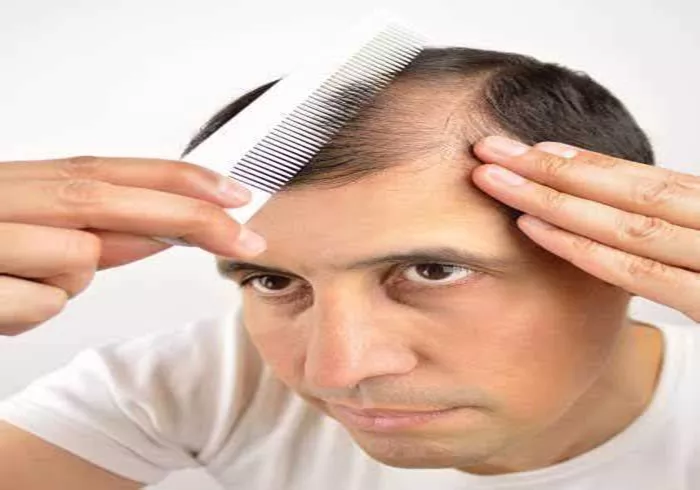Many people worry about the impact of water quality on their hair, especially when it comes to hair loss. One common question is whether soft water contributes to thinning hair or excessive shedding. To understand this, we need to explore what soft water is, how it affects the scalp and hair, and whether there’s a scientific link between soft water and hair loss.
Understanding Soft Water
Soft water is water that has low concentrations of dissolved minerals, particularly calcium and magnesium. These minerals are removed through a process called water softening, often involving ion exchange systems that replace calcium and magnesium ions with sodium or potassium ions.
Hard water, on the other hand, contains high levels of these minerals. While hard water is known to leave deposits on hair, making it feel rough and dry, soft water is often praised for its ability to lather soap more easily and leave hair feeling smoother. However, some people claim that soft water leads to hair loss. Is there any truth to this?
How Soft Water Affects Hair and Scalp
Soft water interacts differently with hair and scalp compared to hard water. Here’s how:
Better Cleansing but Potential Over-Stripping
Soft water allows shampoos to lather more effectively, which can make hair feel cleaner. However, because it lacks minerals, it may also strip away natural oils more aggressively than hard water. If the scalp becomes too dry, it could lead to irritation, flakiness, and even weakened hair roots over time.
Sodium Content in Softened Water
Some water softeners use sodium ions to replace calcium and magnesium. While the amount of sodium added is usually minimal, people with sensitive scalps or those on low-sodium diets may experience dryness or irritation. A dry, irritated scalp can contribute to hair shedding, though this is not the same as permanent hair loss.
Hair Texture Changes
Soft water can make hair feel softer and silkier because it doesn’t leave mineral buildup. However, some people find that their hair becomes too soft and lacks volume, leading them to believe their hair is thinning. In reality, this is a textural change rather than actual hair loss.
Is There a Direct Link Between Soft Water and Hair Loss?
Currently, there is no strong scientific evidence that soft water directly causes hair loss. Most hair loss is due to genetic factors (like male or female pattern baldness), hormonal changes, nutritional deficiencies, stress, or medical conditions. However, soft water could indirectly contribute to hair shedding in the following ways:
Scalp Irritation and Dryness
If soft water makes your scalp overly dry or irritated, it could lead to increased hair shedding. A compromised scalp barrier may weaken hair follicles, making them more prone to breakage.
Excessive Product Buildup
Because soft water doesn’t rinse away products as harshly as hard water, some people may end up with buildup from conditioners or styling products. This can clog hair follicles over time, potentially leading to weaker hair growth.
Misinterpretation of Hair Changes
Since soft water alters hair texture, some individuals may mistake their hair’s softer, flatter appearance for thinning. In most cases, this is not true hair loss but rather a change in how the hair feels and behaves.
How to Protect Your Hair if You Use Soft Water
If you’re concerned about soft water affecting your hair, here are some steps you can take:
Use a Gentle, Moisturizing Shampoo
Since soft water can be more effective at stripping oils, opt for sulfate-free or hydrating shampoos to prevent excessive dryness.
Incorporate a Scalp Treatment
Regular scalp massages with nourishing oils (like jojoba or argan oil) can help maintain moisture balance and reduce irritation.
Install a Shower Filter
If your water softener adds sodium, a filter can help reduce potential scalp dryness.
Monitor Hair Health Over Time
If you notice increased shedding after switching to soft water, consult a dermatologist to rule out other causes of hair loss.
Conclusion
While soft water may change the way your hair feels and behaves, there is no conclusive evidence that it directly causes hair loss. Any shedding linked to soft water is likely due to secondary factors like dryness or irritation rather than permanent follicle damage. If you’re experiencing significant hair loss, it’s best to consult a healthcare professional to identify the root cause rather than blaming water quality alone.
Maintaining a healthy scalp, using the right hair care products, and ensuring a balanced diet are far more critical in preventing hair loss than the type of water you use. Soft water may require slight adjustments in your hair care routine, but it is unlikely to be the primary culprit behind thinning hair.
Related Topics:
- How Does Medication Cause Hair Loss?
- What Thinning Hair Looks Like: A Comprehensive Guide
- Can You Lose Hair After Transplant?


